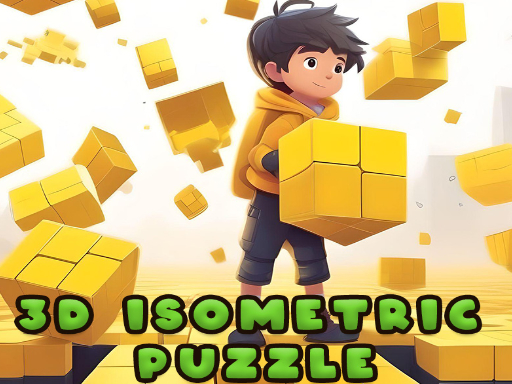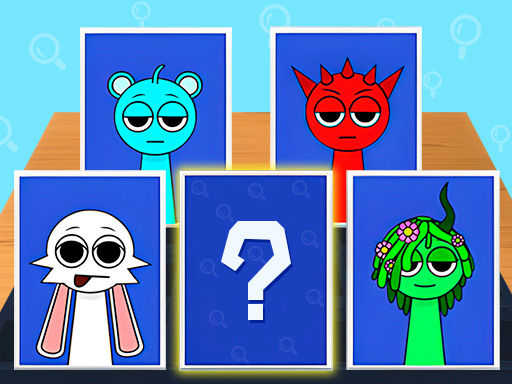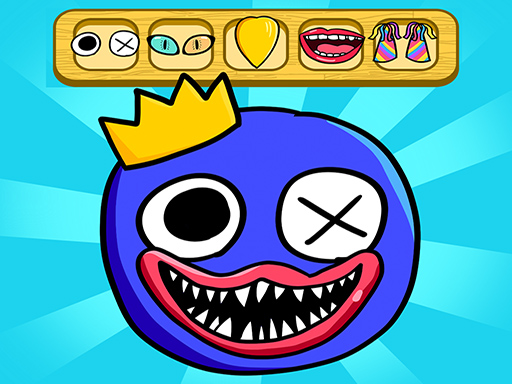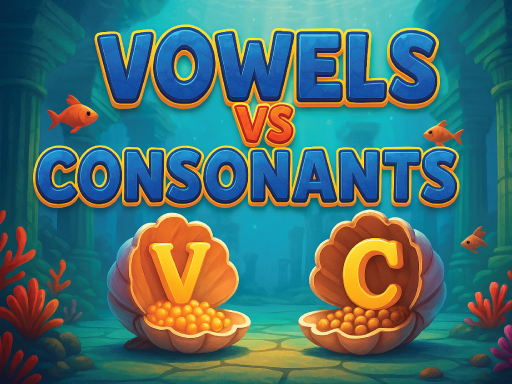Cosmic Star Enigma
About Cosmic Star Enigma
Alright, so you know how sometimes you just stumble across a game, completely by accident, and it just… clicks? Like, it’s not the big AAA blockbuster everyone’s talking about, but it carves out this perfect little niche in your brain and suddenly you can’t stop thinking about it? Yeah, that’s exactly what happened to me with this absolute gem called *Cosmic Star Enigma*. Seriously, you *have* to hear about this.
I was just casually browsing, not even really looking for anything in particular, and the name just sort of jumped out at me. Cosmic Star Enigma. It sounds so… grand, right? Like some epic space opera or a deep philosophical journey. And then I saw what it was, and honestly, my first thought was, "Oh, a hidden object game. Cute." But let me tell you, it’s so much more than "cute." It’s captivating. It’s challenging. It’s got this incredible way of just pulling you into its orbit and making you forget about everything else.
Imagine diving headfirst into these absolutely breathtaking, almost ethereal cosmic landscapes. Each level is a new, incredibly detailed image, a snapshot of some distant galaxy, a nebula swirling with colors you didn't even know existed, or a star cluster that looks like a painter’s most ambitious dream. And within these vast, intricate tapestries of light and shadow, your mission, should you choose to accept it, is to unearth these elusive, shimmering cosmic stars that are just *begging* to be found. There are twelve of them in each scene, and let me tell you, they are masters of disguise.
What I love about games like this, especially *Cosmic Star Enigma*, is that initial moment when you first load up a new level. You’re presented with this incredible visual feast, and for a split second, you just take it all in. You’re not even looking for anything yet; you’re just appreciating the artistry. The way the light catches a distant planet, the subtle gradients of a gas cloud, the tiny, almost imperceptible details that make the whole image feel alive. And then, the hunt begins. Your eyes start to scan, sweeping across the image, looking for anything that glints, anything that feels a little out of place, anything that whispers "star."
And here’s where the genius really kicks in, where it grabs you by the collar and says, "Are you *really* paying attention?" – there’s a clock, ticking down relentlessly. It’s not just a casual stroll through a pretty picture; it’s a race against time. That pressure, man, it just elevates the whole experience. You start off calm, confident, spotting a few obvious ones. "Oh, there’s one! And another! Easy peasy." But then you hit a wall. You’ve got five, maybe six stars, and the clock is suddenly breathing down your neck, and those last few… they’re just *gone*. They’ve vanished into the cosmic background, mocking you with their invisibility.
This is where the game really shines for me. It’s not about pixel-hunting in a frustrating way; it’s about training your eye, about learning to see patterns, about developing this almost intuitive sense of where a star *might* be hiding. You start to notice how they blend with the dust lanes of a nebula, how they might be tucked behind a distant asteroid, or how their subtle shimmer is almost perfectly mimicked by the natural sparkle of the cosmic scene. You find yourself leaning closer to the screen, squinting, your brow furrowed in concentration. You can almost feel the tension building in your shoulders, that quiet hum of focused energy.
And oh, the sting of a misplaced click! You know that moment when your finger just *twitches*, or you’re so sure you’ve found it, only to realize you’ve clicked on a random speck of dust? *Cosmic Star Enigma* doesn’t let you off easy. Every wrong click shaves an additional five seconds off your precious time. Five seconds! That might not sound like much, but when you’re down to the wire, frantically searching for that last elusive star, five seconds can feel like an eternity, or rather, the sudden, brutal end of one. It’s enough to make you audibly groan, maybe even let out a frustrated little sigh, before you shake it off and redouble your efforts. That penalty isn't just a mechanic; it's a brilliant psychological tool. It forces you to be precise, to hesitate just long enough to be *sure*, but not so long that the clock runs out. It’s a delicate balance, a constant dance between speed and accuracy.
What’s brilliant is how each of the twelve levels feels like its own distinct universe. It’s not just the same image with stars moved around; it’s a completely new, hand-crafted cosmic vista every time. One level might be a vibrant, swirling galaxy, full of bright colors and sweeping curves, where the stars are hidden among the dazzling light. The next might be a darker, more brooding scene, a field of distant stars against a deep void, where the challenge is to distinguish the hidden ones from the countless natural background stars. This variety keeps things incredibly fresh and prevents any sense of monotony. You never know what kind of cosmic wonder you’re going to encounter next, and that anticipation is a huge part of the fun.
Honestly, I haven’t felt this kind of focused, almost meditative tension since I was trying to spot those tiny, impossible-to-find details in some of the classic point-and-click adventure games from back in the day. There's something truly magical about that moment when your eyes finally land on a star you’ve been hunting for what feels like an age. That little "click" sound the game makes, that subtle shimmer that confirms your discovery – it’s just pure, unadulterated satisfaction. It’s that little burst of dopamine that makes all the squinting and the frantic searching worth it. You lean back, take a breath, and then dive right back into the hunt for the next one.
The pacing is just perfect too. Twelve levels, twelve stars per level. It feels substantial enough to be a real challenge, to give you a genuine sense of accomplishment when you finally clear a level, but it’s also concise enough that you can jump in for a quick session without feeling like you’re committing to an epic journey. It’s that perfect "just one more level" kind of game. You finish one, feel that rush of victory, and then you’re immediately curious about what the next cosmic scene will hold. Will it be harder? Will the stars be even more cunningly disguised? The game masterfully builds that curiosity.
In my experience, the best moments come when you’re down to the last star, and the timer is flashing red, counting down those final agonizing seconds. Your heart starts to pound a little faster, your breath hitches, and you’re just frantically scanning every inch of the screen, convinced you’ve looked everywhere. And then, *bam!* There it is. Tucked away in some corner you’d completely overlooked, or blending so perfectly with a nebula’s edge that it was practically invisible. That surge of adrenaline, followed by the immense relief and triumph as the "Level Complete" message flashes across the screen – that’s the good stuff, man. That’s why we play games.
You’ll find yourself developing little strategies too. Do you sweep methodically from left to right, top to bottom? Or do you try to pick off the obvious ones first to buy yourself some time, then go back for the tricky ones? What’s fascinating is how your approach evolves as you play. You start to recognize certain patterns in how the stars are hidden, or you learn to ignore the natural "noise" of the cosmic background and focus only on what truly stands out. The brilliant thing about this is that it’s not just about raw observation; it’s about developing a skill, a sharper eye, and that’s incredibly rewarding.
This isn’t some overly complex game with a sprawling narrative or intricate skill trees, and that’s precisely its strength. It’s pure, unadulterated puzzle-solving, distilled to its most engaging essence. It’s about focus, observation, and that delightful little mental workout. It's the kind of game you can just lose yourself in for an hour or two, completely disconnecting from the outside world and immersing yourself in these beautiful, enigmatic cosmic vistas. It's free to play online, which is just insane considering the quality of the visuals and the sheer addictiveness of the gameplay.
Seriously, if you’re looking for something that’s going to challenge your eyes, sharpen your focus, and give you that satisfying "aha!" moment over and over again, you absolutely have to check out *Cosmic Star Enigma*. It’s one of those hidden gems that just deserves to be discovered, just like those elusive stars. I have a feeling you’re going to love it. Go on, give it a shot. You won’t regret it.
I was just casually browsing, not even really looking for anything in particular, and the name just sort of jumped out at me. Cosmic Star Enigma. It sounds so… grand, right? Like some epic space opera or a deep philosophical journey. And then I saw what it was, and honestly, my first thought was, "Oh, a hidden object game. Cute." But let me tell you, it’s so much more than "cute." It’s captivating. It’s challenging. It’s got this incredible way of just pulling you into its orbit and making you forget about everything else.
Imagine diving headfirst into these absolutely breathtaking, almost ethereal cosmic landscapes. Each level is a new, incredibly detailed image, a snapshot of some distant galaxy, a nebula swirling with colors you didn't even know existed, or a star cluster that looks like a painter’s most ambitious dream. And within these vast, intricate tapestries of light and shadow, your mission, should you choose to accept it, is to unearth these elusive, shimmering cosmic stars that are just *begging* to be found. There are twelve of them in each scene, and let me tell you, they are masters of disguise.
What I love about games like this, especially *Cosmic Star Enigma*, is that initial moment when you first load up a new level. You’re presented with this incredible visual feast, and for a split second, you just take it all in. You’re not even looking for anything yet; you’re just appreciating the artistry. The way the light catches a distant planet, the subtle gradients of a gas cloud, the tiny, almost imperceptible details that make the whole image feel alive. And then, the hunt begins. Your eyes start to scan, sweeping across the image, looking for anything that glints, anything that feels a little out of place, anything that whispers "star."
And here’s where the genius really kicks in, where it grabs you by the collar and says, "Are you *really* paying attention?" – there’s a clock, ticking down relentlessly. It’s not just a casual stroll through a pretty picture; it’s a race against time. That pressure, man, it just elevates the whole experience. You start off calm, confident, spotting a few obvious ones. "Oh, there’s one! And another! Easy peasy." But then you hit a wall. You’ve got five, maybe six stars, and the clock is suddenly breathing down your neck, and those last few… they’re just *gone*. They’ve vanished into the cosmic background, mocking you with their invisibility.
This is where the game really shines for me. It’s not about pixel-hunting in a frustrating way; it’s about training your eye, about learning to see patterns, about developing this almost intuitive sense of where a star *might* be hiding. You start to notice how they blend with the dust lanes of a nebula, how they might be tucked behind a distant asteroid, or how their subtle shimmer is almost perfectly mimicked by the natural sparkle of the cosmic scene. You find yourself leaning closer to the screen, squinting, your brow furrowed in concentration. You can almost feel the tension building in your shoulders, that quiet hum of focused energy.
And oh, the sting of a misplaced click! You know that moment when your finger just *twitches*, or you’re so sure you’ve found it, only to realize you’ve clicked on a random speck of dust? *Cosmic Star Enigma* doesn’t let you off easy. Every wrong click shaves an additional five seconds off your precious time. Five seconds! That might not sound like much, but when you’re down to the wire, frantically searching for that last elusive star, five seconds can feel like an eternity, or rather, the sudden, brutal end of one. It’s enough to make you audibly groan, maybe even let out a frustrated little sigh, before you shake it off and redouble your efforts. That penalty isn't just a mechanic; it's a brilliant psychological tool. It forces you to be precise, to hesitate just long enough to be *sure*, but not so long that the clock runs out. It’s a delicate balance, a constant dance between speed and accuracy.
What’s brilliant is how each of the twelve levels feels like its own distinct universe. It’s not just the same image with stars moved around; it’s a completely new, hand-crafted cosmic vista every time. One level might be a vibrant, swirling galaxy, full of bright colors and sweeping curves, where the stars are hidden among the dazzling light. The next might be a darker, more brooding scene, a field of distant stars against a deep void, where the challenge is to distinguish the hidden ones from the countless natural background stars. This variety keeps things incredibly fresh and prevents any sense of monotony. You never know what kind of cosmic wonder you’re going to encounter next, and that anticipation is a huge part of the fun.
Honestly, I haven’t felt this kind of focused, almost meditative tension since I was trying to spot those tiny, impossible-to-find details in some of the classic point-and-click adventure games from back in the day. There's something truly magical about that moment when your eyes finally land on a star you’ve been hunting for what feels like an age. That little "click" sound the game makes, that subtle shimmer that confirms your discovery – it’s just pure, unadulterated satisfaction. It’s that little burst of dopamine that makes all the squinting and the frantic searching worth it. You lean back, take a breath, and then dive right back into the hunt for the next one.
The pacing is just perfect too. Twelve levels, twelve stars per level. It feels substantial enough to be a real challenge, to give you a genuine sense of accomplishment when you finally clear a level, but it’s also concise enough that you can jump in for a quick session without feeling like you’re committing to an epic journey. It’s that perfect "just one more level" kind of game. You finish one, feel that rush of victory, and then you’re immediately curious about what the next cosmic scene will hold. Will it be harder? Will the stars be even more cunningly disguised? The game masterfully builds that curiosity.
In my experience, the best moments come when you’re down to the last star, and the timer is flashing red, counting down those final agonizing seconds. Your heart starts to pound a little faster, your breath hitches, and you’re just frantically scanning every inch of the screen, convinced you’ve looked everywhere. And then, *bam!* There it is. Tucked away in some corner you’d completely overlooked, or blending so perfectly with a nebula’s edge that it was practically invisible. That surge of adrenaline, followed by the immense relief and triumph as the "Level Complete" message flashes across the screen – that’s the good stuff, man. That’s why we play games.
You’ll find yourself developing little strategies too. Do you sweep methodically from left to right, top to bottom? Or do you try to pick off the obvious ones first to buy yourself some time, then go back for the tricky ones? What’s fascinating is how your approach evolves as you play. You start to recognize certain patterns in how the stars are hidden, or you learn to ignore the natural "noise" of the cosmic background and focus only on what truly stands out. The brilliant thing about this is that it’s not just about raw observation; it’s about developing a skill, a sharper eye, and that’s incredibly rewarding.
This isn’t some overly complex game with a sprawling narrative or intricate skill trees, and that’s precisely its strength. It’s pure, unadulterated puzzle-solving, distilled to its most engaging essence. It’s about focus, observation, and that delightful little mental workout. It's the kind of game you can just lose yourself in for an hour or two, completely disconnecting from the outside world and immersing yourself in these beautiful, enigmatic cosmic vistas. It's free to play online, which is just insane considering the quality of the visuals and the sheer addictiveness of the gameplay.
Seriously, if you’re looking for something that’s going to challenge your eyes, sharpen your focus, and give you that satisfying "aha!" moment over and over again, you absolutely have to check out *Cosmic Star Enigma*. It’s one of those hidden gems that just deserves to be discovered, just like those elusive stars. I have a feeling you’re going to love it. Go on, give it a shot. You won’t regret it.
Enjoy playing Cosmic Star Enigma online for free on Colosm. This Puzzle game offers amazing gameplay and stunning graphics. No downloads required, play directly in your browser!
How to Play
Mouse click or tap to play





Comments
This game is awesome! I love the graphics and gameplay.
One of the best games I've played recently. Highly recommended!